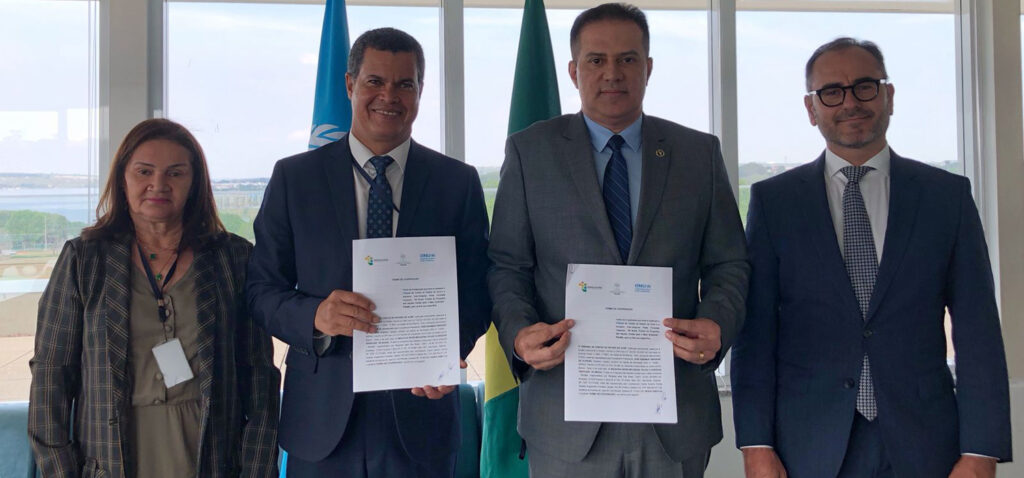On October 4, IRI Brazil entered into a significant cooperation agreement with the Court of Auditors of the State of Acre (TCE AC) at the UN House in Brasília. This agreement is aimed at enhancing the efforts of the Court in combatting climate change and preserving forests in the state of Acre. The agreement was formally signed by the President of TCE, José Ribamar Trindade de Oliveira, the National Facilitator of IRI Brazil, Carlos Vicente, and the advisor and inspector of TCE AC, Dulcinéa Benício de Araújo. The ceremony was attended by Gustau Mañez, the UNEP Representative in Brazil, who highlighted the significance of this partnership for the United Nations. The cooperation agreement outlines collaborative initiatives in two key areas: (i) TCE and IRI Brazil will jointly develop and implement training programs focusing on climate change mitigation and adaptation, as well as the restoration, preservation, and sustainable use of forests (trainings will be for the employees of TCE, municipal authorities, and state government agencies in Acre), and (ii) TCE AC and IRI Brazil will collaborate on awareness programs addressing climate change and forest conservation. (programs designed for school communities and the general public in Acre). Audit Courts are external oversight bodies within the Public Administration that support the Legislative Branch in monitoring budgetary and financial execution. They assess both the proper allocation of public resources and the effectiveness of government policies and actions at all levels of government. As such, they hold significant influence in encouraging governments to adopt and implement socio-environmental public policies that safeguard the population from the adverse effects of climate change and protect public environmental assets, such as forests and water resources. IRI Brazil is actively pursuing cooperation agreements with other Audit Courts in the Legal Amazon region, aiming to bolster these bodies’ roles in managing socio-environmental policies and cooperating to reduce deforestation, wildfires, and the adoption of climate change adaptation measures. This focus is especially important in areas most vulnerable to these issues and where they pose the greatest threats.



